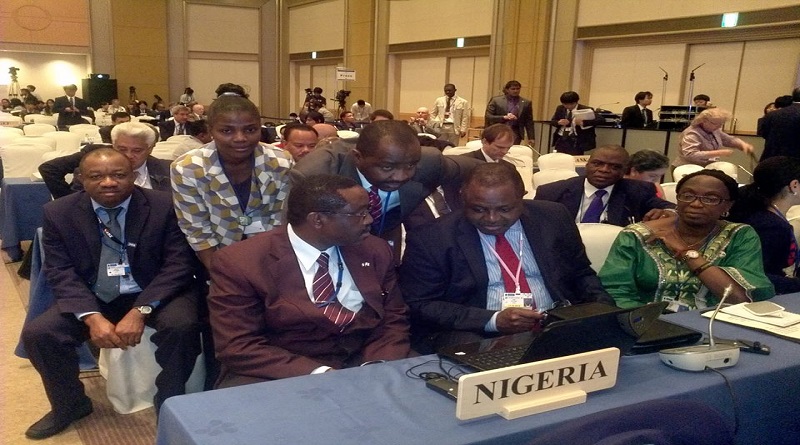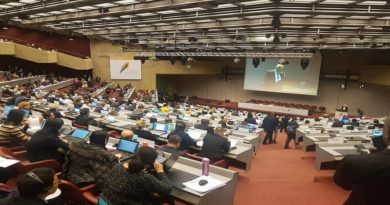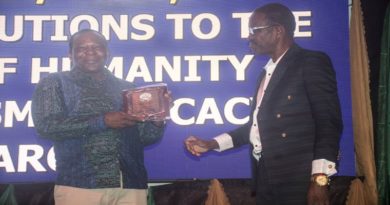Nigeria: Expert bemoans slow process on Minamata Convention ratification
Apparently displeased by the slow process through the Minamata Initial Assessment (MIA) embarked on by the Federal Government towards the ratification of the Minamata Convention, the Executive Director of Sustainable Research and Action for Environmental Development (SRADev Nigeria), Mr. Leslie Adogame has called on the government to speed up the process so that the country can ratify the Convention on time.
Specifically, Adogame said the country can no longer continue to sit on the fence as more and more countries ratifies the Minamata Convention.
He noted that the Nigerian process towards the ratification through the ongoing national Minamata Initial Assessment has being fatally slowed by human factors.
“The Nigerian process towards the ratification through the ongoing national Minamata Initial Assessment (MIA) has being fatally slowed by human factors. We can no longer continue to sit on the fence as more and more countries ratifies the Minamata Convention” said Leslie Adogame
Nigeria became a signatory to the Convention in October 2013 but the government is yet to ratify it. So far, 27 countries out of the 128 that are signatory to the Convention had ratified it.
On 25 May 2016, the Government of Switzerland deposited its instrument of ratification to the Minamata Convention at a ratification ceremony in New York. Shortly thereafter, on 27 May 2016, the Government of Mali deposited its instrument of ratification to the Minamata Convention, bringing the number of future Parties to the Convention up to 27.
The Minamata Convention on Mercury is a global treaty to protect human health and the environment from the adverse effects of mercury. It was agreed at the fifth session of the Intergovernmental Negotiating Committee on mercury in Geneva, Switzerland at 7 a.m. on the morning of Saturday, 19 January 2013 and adopted later that year on 10 October 2013 at a Diplomatic Conference (Conference of Plenipotentiaries), held in Kumamoto, Japan.
The Convention draws attention to a global and ubiquitous metal that, while naturally occurring, has broad uses in everyday objects and is released to the atmosphere, soil and water from a variety of sources. Controlling the anthropogenic releases of mercury throughout its lifecycle has been a key factor in shaping the obligations under the Convention.
Major highlights of the Minamata Convention include a ban on new mercury mines, the phase-out of existing ones, the phase out and phase down of mercury use in a number of products and processes, control measures on emissions to air and on releases to land and water, and the regulation of the informal sector of artisanal and small-scale gold mining. The Convention also addresses interim storage of mercury and its disposal once it becomes waste, sites contaminated by mercury as well as health issues.
Meanwhile, the Special Programme on Chemicals and waste is calling developing countries and countries with economies in transition to submit projects proposals for funding between USD $50,000 to $250,000. The deadline for applications is 4 July 2016.
The Special Programme aims to strengthen national institutions and to promote the mainstreaming of the sound management of chemicals and waste. Key activities supported by the programme provide countries to advance institutional capacity for the implementation of the Basel, Rotterdam and Stockholm Conventions, the Minamata Convention and SAICM.
Activities supported by the programme intend to strengthen national capacities, monitor implementation and enforcement of legislation and regulatory frameworks, and this includes developing national plans, budgets, policies, legislation and implementation frameworks for the sound management of chemicals and wastes throughout their life-cycle and at all levels.
Fundamentally linking chemicals and waste management with the economic, environmental and social development agenda is essential to sustainable development. It creates new impetus for the implementation of international chemicals and waste agreements, as well as other relevant international commitments and policy frameworks, including the Strategic Approach to International Chemicals Management (SAICM). The integration of sound management of chemicals and waste in the 2030 Agenda for Sustainable Development is a major achievement.




